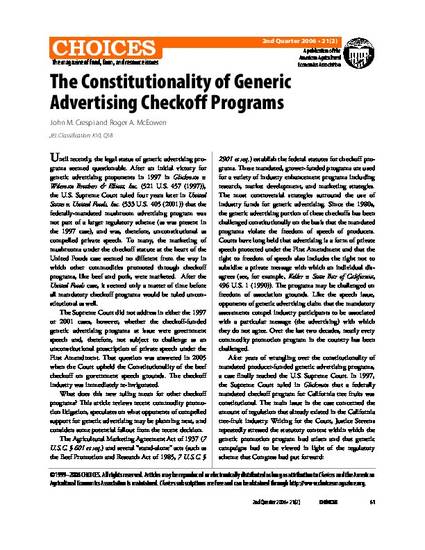
Until recently, the legal status of generic advertising programs seemed questionable. After an initial victory for generic advertising proponents in 1997 in Glickman v. Wileman Brothers & Elliott, Inc. (521 U.S. 457 (1997)), the U.S. Supreme Court ruled four years later in United States v. United Foods, Inc. (533 U.S. 405 (2001)) that the federally-mandated mushroom advertising program was not part of a larger regulatory scheme (as was present in the 1997 case), and was, therefore, unconstitutional as compelled private speech. To many, the marketing of mushrooms under the checkoff statute at the heart of the United Foods case seemed no different from the way in which other commodities promoted through checkoff programs, like beef and pork, were marketed. After the United Foods case, it seemed only a matter of time before all mandatory checkoff programs would be ruled unconstitutional as well.
Available at: http://works.bepress.com/john-crespi/18/

This article is from Choices, 2006, 21(2); 61-65. Posted with permission.